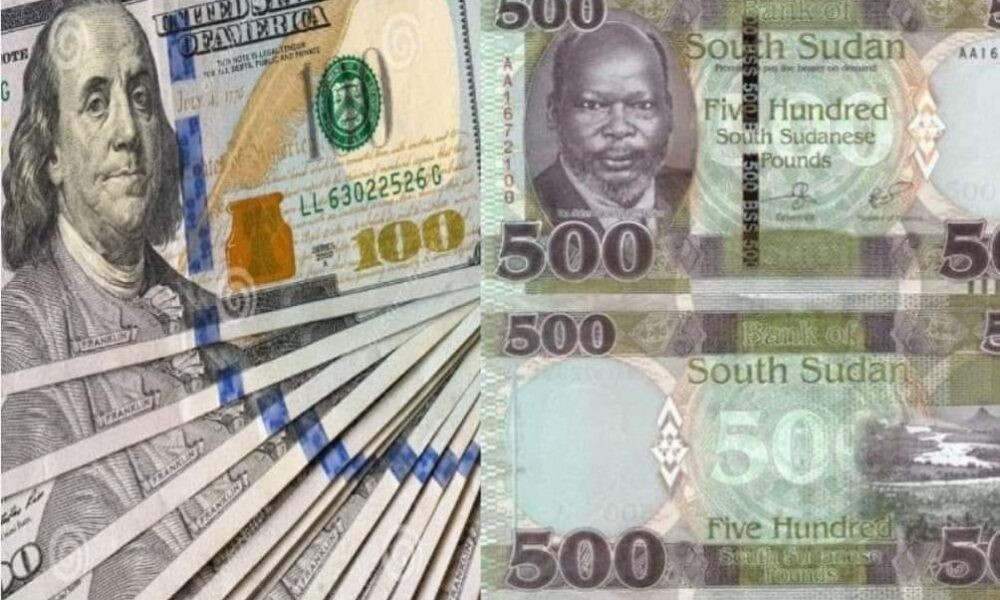By Deng Ghai Deng
An economist cautions the public against appreciation of South Sudanese Pound (SSP) against the US dollar.
Dr. Akim Ajieth Buny, an economic scientist describes the scenario in the country as a maneuver orchestrated by black market currency dealers rather than a sign of genuine economic improvement.
Dr. Akim is also an associate professor of Public Administration and Administrative Sciences at John Garang Memorial University of Science and Technology, in Bor.
He argues that the apparent appreciation of the SSP is a temporary fluctuation caused by recent decisions by the Central Bank of South Sudan (BoSS) to withdraw 1,000- and 500-pound notes from circulation.
The action has created a short-term distortion in the exchange rate, giving the false impression of the pound gaining value against the dollar, which Dr. Akim predicts the trend will be short-lived.
“Traders may have agreed to lower the dollar’s price against the pound in order to purchase more dollars,” Dr. Akim explained.
“Once they have accumulated a substantial amount, they are likely to drive the price back up, potentially reaching 700,000 to 800,000 SSP per 100 dollars.”
The Central Bank of South Sudan (BoSS) recently announced a policy intervention aimed at addressing economic challenges by withdrawing large denominations from circulation and replacing them with smaller notes.
However, Dr. Akim criticizes this approach, stating it will have little impact on the underlying economic issues.
“In actual sense, it doesn’t really add anything to the economy. It’s not going to affect commodity prices or change the currency system,” Dr. Akim remarked.
“If it were a change of currency, it might have had some effect, but this approach will not make any important difference.”
Dr. Akim speculates that the officials at the Central Bank may be trying to encourage digital transactions as a way to mitigate the problem of bulky currency notes.
He emphasized the need for increased productivity, particularly in the agricultural sector, establishing factories, as well as investing in real estate as potential measures to reduce reliance on foreign currency and stabilize the economy.
“You cannot maintain an economy without production,” he said. “We must be able to produce our own goods locally. This will flood the market with local products and reduce the demand for foreign currency. Currently, 99 per cent of the goods we consume come from outside the country.”
As of Thursday, the exchange rate stands at 2,995 South Sudanese pounds per US dollar, while the parallel market rate is significantly higher at 3,000 pounds per dollar.



